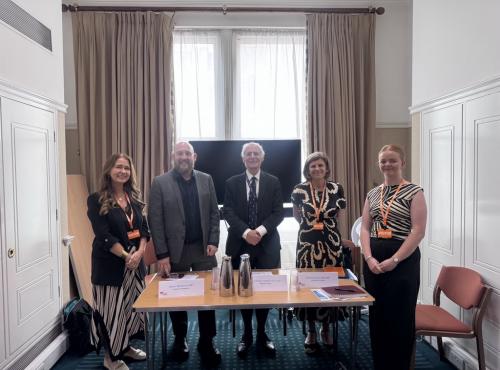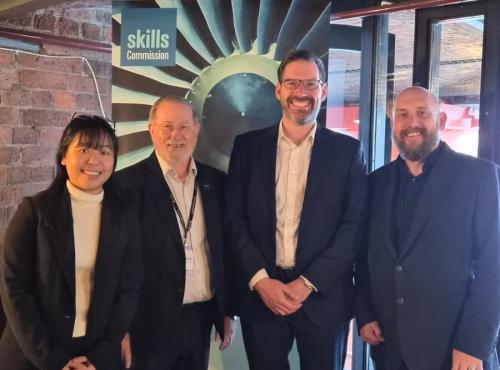HE Commission's First Evidence Session: Student Experiences of blended learning in Higher Education
The shift towards online approaches to learning and teaching only accelerated after nationwide lockdowns, pushing Higher Education (HE) providers to consider long-term strategies and plans to deploy blended learning across the sector.
After the Office for Students (OfS) launched their review of blended learning in 2021, the HE Commission began to unpack the literature surrounding the digital shift occurring across the sector, focusing largely on how the adoption of blended learning models in HE can prepare graduates for the modern workforce.
The Student Futures Commission ran a survey in 2021 that found that 66% of students want a blend of in-person and online teaching, 45% of students want an in-person experience supplemented by online activities, and 21% want to study mostly online with in-person activities once or twice a week. This shows a very optimistic view of combining delivery modes – it provides flexibility and adaptability to students who often have diverse needs. In response to the growing attention (both positive and negative) towards this transition, the HE Commission officially launched the inquiry into blended learning on 11 July, with the first evidence session commencing on the topic of Student Experiences: Transferrable Skills, Social Inclusion and Accessibility.
We were joined by various sector representatives as well as educators and students, who came together to discuss what policymakers and HE providers can do to leverage the benefits of blended learning.
Key Takeaways:
-
Blended learning models widens accessibility to students who may otherwise be disadvantages due to its flexible, asynchronous approach to learning. Students can rewind, rewatch, and revisit lessons at any point in time, allowing for a ‘low stakes’ learning environment.
-
Blended learning models also enables working professionals to readily switch careers or adapt their learning to their work schedule. This has increased the number of mature students across HE, especially in the health sector.
-
Students are most concerned about the lack of community and social engagement. It is easier for students to disengage with peers and friends when they only have online/digital interactions throughout their university degrees. As such, it is important to consider what an optimal blend is, ensuring that the blend is appropriate and relevant to the discipline.
-
There needs to be a collective effort to embed blended learning within the pedagogy and curriculum – course materials and resources should not simply be uploaded to digital spaces for reference. A purposive design would provide students with on-site experiences that fosters collaboration and teamwork, whilst online learning would enhance students’ independence and self-led study.
What's Next?
This session marks the first out of three evidence sessions planned for this inquiry. The Education and Skills team will be collecting evidence (written submission, semi-structured interviews and oral evidence) throughout Summer-Winter of 2023.
If you would like further information, please get in touch with Alyson, Researcher for Education and Skills at alyson.hwang [at] policyconnect.org.uk (alyson.hwang@policyconnect.org.uk).




